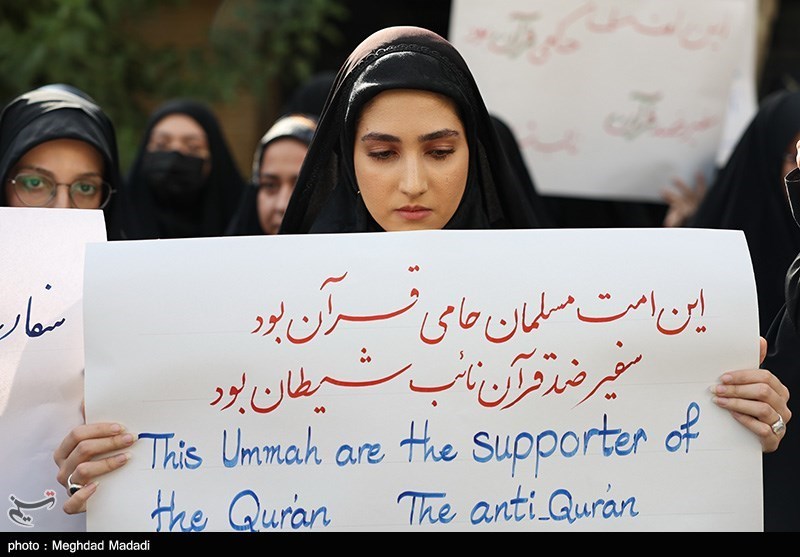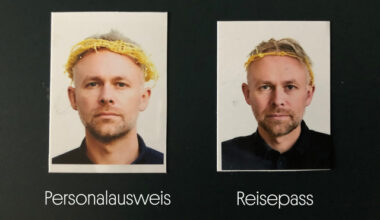
The recent burning of the Quran in the Swedish city of Malmo by an Iraqi refugee, Salwan Momika, has caused outrage in many Muslim countries. Pakistan, Iraq, Iran, Indonesia, Malaysia, Turkey and others have issued statements condemning the action and have asked Sweden to reconsider its laws protecting freedom of expression. There have been public protests in several cities in these countries, demanding the severance of diplomatic ties with Sweden.
Momika burnt a copy of the Quran on 3rd September this year, as a protest against Islam. According to the Swedish newspaper, The Local, Momika claimed that his protest was against the Muslim religion, not Muslims, and that the Quran should be banned globally for causing a ‘negative impact’. In contrast, the Saudi Arabia-based Arab News implied that Momika’s act was a cynical attempt to secure his refugee status. In response to his protest, some Muslims in Sweden also attacked local police.
Media outlets in Muslim-majority countries have covered this incident, and others like it, extensively, despite their limited domestic relevance. The media in these countries frame these incidents as a wilful assault on Islam, and portray the doers as malicious. Certainly, the outrage is understandable, given the deep Muslim reverence for the Quran. On the other hand, the strongly negative spin given to these burnings could put the lives of the protesters in danger, and also cause a difficult situation for religious minorities living in the Muslim-majority countries where the articles are published.
Sweden’s Quran burning is just one of several similar acts that have occurred recently across Europe. Far-right groups in Sweden and Denmark have also burnt copies of the Quran during rallies and protests. These incidents provoke intense outrage when covered by the Muslim media. For example, when a far-right activist burnt a copy of Quran in Sweden in 2020, the media outlets in Pakistan and Iran responded with inflammatory language of their own. Whatever the ideological motivations of the different protesters in different cases, the outrage of the Muslim media has been more or less the same.
Take the Pakistani media’s coverage of the recent Quran burning in Sweden as an example. Some local media outlets in Pakistan used the word ‘Maloon’ (‘accursed’) of Momika in headlines and news content. They described his act of burning the Quran as ‘na paak’ (‘impure’) and used the words ‘be hurmati’ (‘disrespectful’) to describe what had happened to the holy book of Islam. This inflammatory language probably has its roots in Pakistan’s stringent blasphemy laws, which consider even mentioning blasphemous words or acts to be blasphemous. However, such biased reporting fosters further intolerance in the country, especially toward religious minorities, who already face grave dangers from false blasphemy allegations. Influential figures in parts of Punjab and Sindh already exploit blasphemy charges as a weapon against minorities.
For instance, Asia Bibi, a Christian woman in Pakistan, was accused of blasphemy in June 2009 after an argument with a group of Muslim women. A year later, she became the first woman sentenced to death under Pakistan’s blasphemy laws. In 2020, despite the Supreme Court overturning her conviction, she was forced to flee to Canada in fear for her life. Bibi now lives there in exile with her husband and two children, while three of her children remain in Pakistan.
Bibi’s plight highlights the grave dangers faced by religious minorities under Pakistan’s blasphemy laws. The sensationalised coverage of blasphemy cases by the Pakistani media further fans the flames of intolerance, as it has failed to cover these issues responsibly. The disproportionate coverage given to Quran burnings in Europe stands in stark contrast to the lack of attention by the Pakistani media towards domestic issues, such as the Christian community of Faisalabad, who lost their homes in a mob attack on 16 August this year. In that incident, a mob of hundreds attacked Faisalabad over a false blasphemy accusation against two Christian men. The mob burnt churches, looted homes and damaged the properties of people who had paid for them with their life savings.
The Pakistani media rarely highlight the human impact and the stories behind blasphemy accusations and persecuted minorities. Most of their coverage is dominated by the trials and outrage of the Muslim majority over perceived insults to Islam. They give little attention to the perspectives of freethinkers, progressives, atheists and agnostics – even if they tacitly admit their existence through accusations of the harm that such freethinkers allegedly inflict on society and Islam. The media also overlook the plight of Ahmadiyya community, who are living in constant fear in Pakistan. In this context, their extensive coverage of Momika’s Quran-burning in Sweden makes no sense. The Pakistani media’s attitude to this topic shows clearly that their agenda is to stir up intolerance and hatred at home.
Yet this is not only the case in Pakistan. The media in other Muslim countries follow the same trend. The Iranian media are an example. I tried to search news about Momika in Tehran’s Times of Iran. I found that the incident was being reported in a disturbing way. The paper reported that the Iranian government had asked Sweden to deal with Momika and other culprits or extradite them to Islamic states. In another news item, it described Momika as a member of Israel’s spy agency, and alleged that he was on a mission to deflect attention from Israeli crimes in the West Bank.
In contrast to the Tehran Times, the reporting of these incidents by Bangladesh’s Daily Star was quite balanced. It described the incident and the outrage of Muslim world about it without accusing Momika himself of anything. Its coverage of the incidents lacked vivid details about protests or retaliation. This more measured agenda-setting subtly discourages intolerant sentiments from dominating public discourse in Bangladesh. This is probably because of the more secular political environment of the country and the less stringent blasphemy laws, which together allow media organisations in Bangladesh to adopt a balanced approach in their journalism.
In Nigeria, the country with the biggest Muslim population in Africa, the media followed the line taken by the Tehran Times in their coverage of Momika. The country’s leading English newspaper, Vanguard, used words like ‘provocative’, ‘blasphemous’, ‘abominable’ and ‘heinous’ to describe his action.
This type of inflammatory rhetoric and narrative framing reinforces perceived grievances and breeds intolerance among the mass audience of these media outlets. It fuels a sense of collective outrage and offence by portraying incidents like this as intentional affronts to all Muslims, rather than as isolated acts with a specific political agenda, such as protesting against Islam (rather than aiming to attack Muslims). In contrast, the more responsible reporting from outlets like Bangladesh’s Daily Star resists overblown narratives that could incite a backlash.
These examples suggest that the media in Muslim countries face systemic disincentives that hinder responsible reporting on issues that could be considered blasphemous by local laws and society. These countries have zero tolerance for questioning religious dogma. Their journalists often internalise the biases of wider society. There also exist commercial pressures to cater to audience outrage and increase viewership by sensationalising events like the recent Quran burnings.
Despite these constraints, however, building a culture of ethical journalism remains critical. While overnight change is unrealistic, attitudes can gradually be shifted through training journalists in objective reporting, diversifying newsrooms, and cultivating connections with progressive civil society groups.
There is an urgent need for the media in Muslim countries to develop a code of conduct on reporting incidents deemed blasphemous under their laws. They need to make guidelines to ensure balanced, ethical coverage of those incidents, otherwise their hyped-up reporting will endanger lives both at home and abroad. The media have a moral responsibility to address internal biases and overblown narratives when covering such incidents. They must develop a mechanism for internal reflection on such biases, and must clarify and enforce standards to promote ethics in their coverage of these issues. Only then can they cover religious offence responsibly without compromising human rights and bringing any danger to any community locally or internationally.
Every person has the right to protest, but it should be capable of being practised within safe limits. Desecrating the Quran is a dangerous act that some people carry out to express frustration and anger towards Islam, despite the offence that it causes to Muslims. The media’s sensationalised reporting of such incidents often intensifies this danger for protesters. The media also deliberately ignores the perspective of the protester and the challenges they face afterwards.
As a result of the enormous hostility to acts of protest against Islam, whipped up by the media in Muslim-majority countries, even liberals who would theoretically support the protesters’ right to burn the Quran prefer to stay silent, so as to avoid putting their own lives in danger. Thus a culture of fear is created in which all possibility of reasonable discussion and criticism is suppressed.
No doubt, the road to unbiased coverage upholding human rights in Muslim world will be long. But it must begin with media houses themselves taking an introspective look at how their rhetoric could prove harmful in a long run.
Enjoy this article? Subscribe to our free fortnightly newsletter for the latest updates on freethought. Or make a donation to support our work into the future.








Your email address will not be published. Comments are subject to our Community Guidelines. Required fields are marked *
Donate